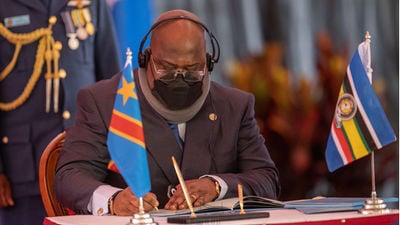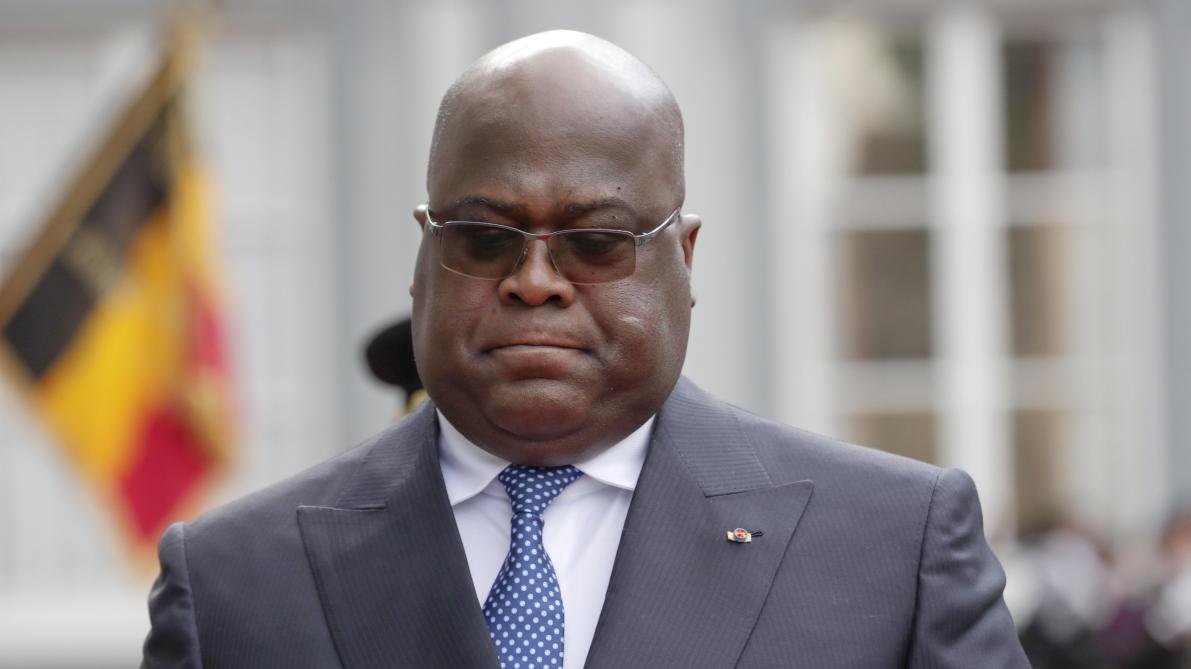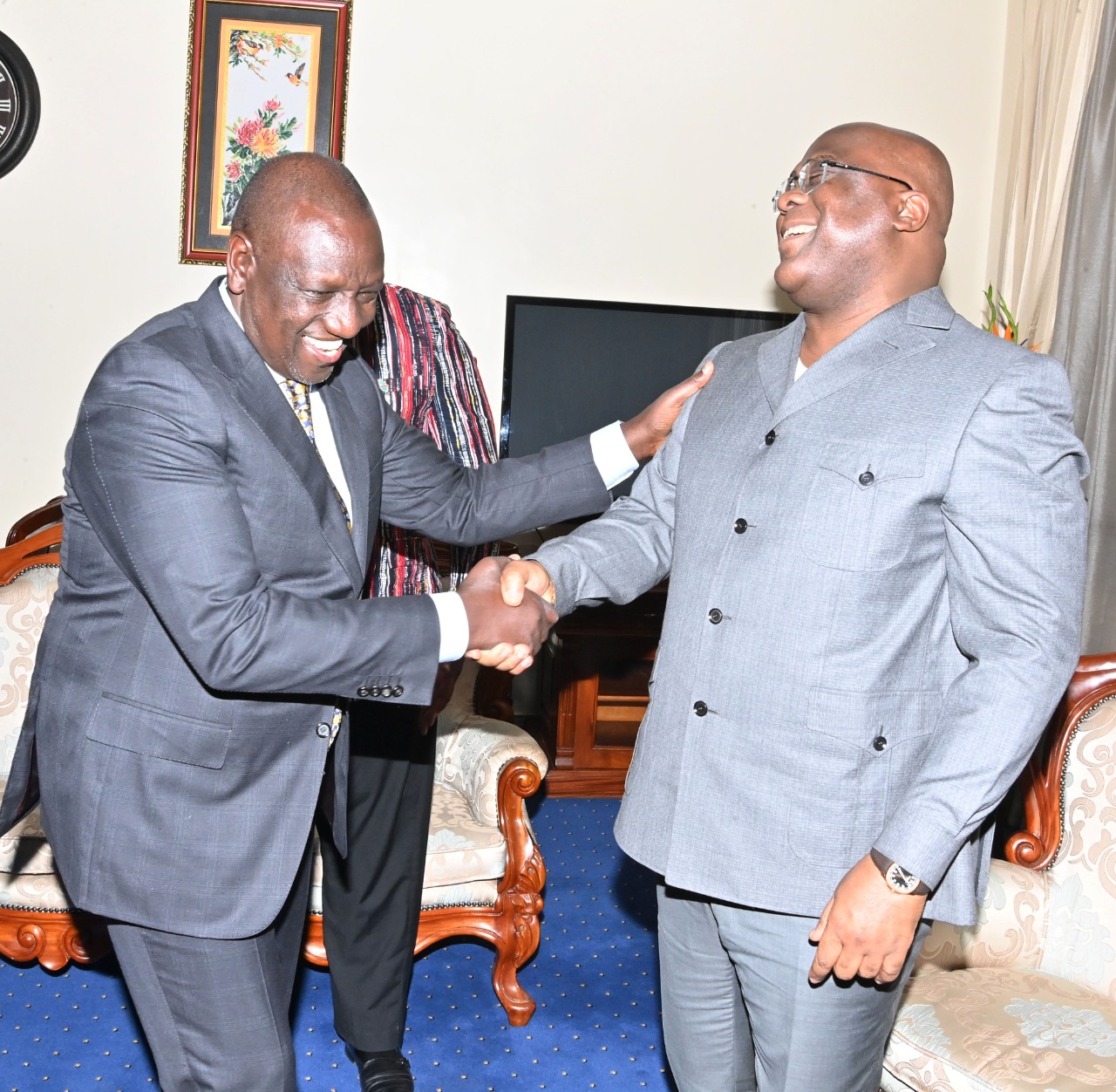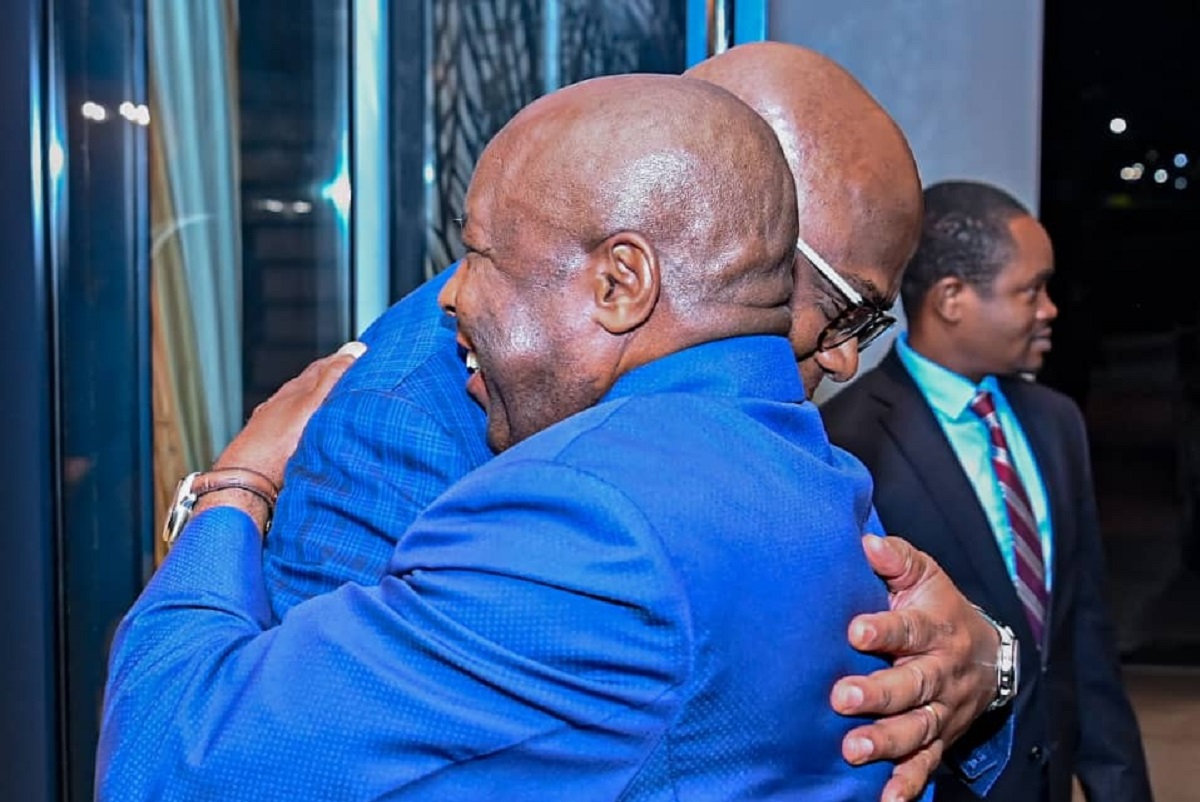Regional
For how long will Tshisekedi play hide and seek within EAC?
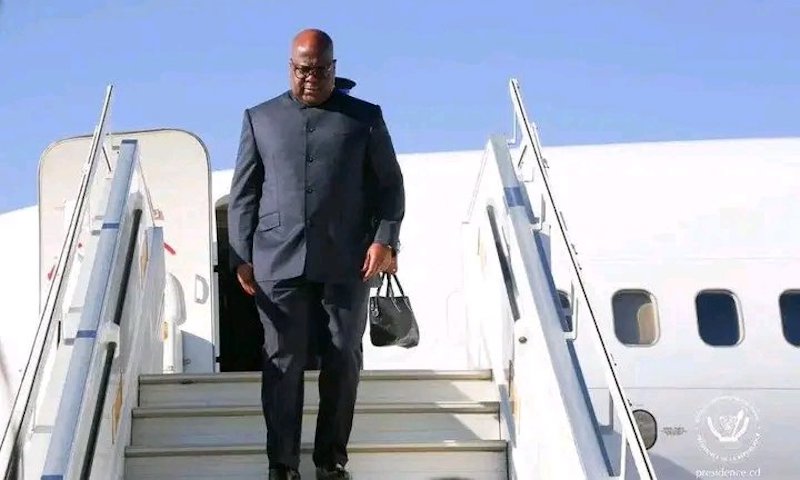
Congolese President Felix Tshisekedi.
Congolese President Felix
Tshisekedi boycotted the June 7 EAC Heads of State Summit and did not even send
a representative.
The 23rd Extra-Ordinary Summit
of EAC Heads of State Chaired by President Salva Kiir of South Sudan - as
current EAC Summit Chairperson- was attended by the Presidents of Rwanda,
Somalia, Uganda, and Tanzania, while the Kenyan and Burundian presidents had
high-level representatives.
Top of the agenda of the Heads
of State Summit, among other issues, was to endorse the bloc’s new Secretary
General, Veronica Mueni Nduva from Kenya, who replaced her compatriot Peter
Mathuki.
The conspicuous absence of
Tshisekedi, and his failure to send a representative was seen as an act of
disrespect even as he expressed his displeasure with EAC leaders regarding
their “unwelcome” advice for a peaceful settlement of the security crisis in
the east of his country.
Some analysts linked
Tshisekedi’s boycott of the EAC Summit
to President William Ruto’s interview in May, with French publication Jeune
Afrique, where he pointed out that if M23 rebels are Congolese, as Kinshasa
admitted in an earlier Heads of State meeting, then how does the question of
M23 become Rwanda’s problem?
“As Heads of State, in a meeting, we asked;
M23, the people in there, are they Rwandese or they are Congolese? And DRC
said, these are Congolese. End of question...So, if these are Congolese, how
does it become a Rwanda problem? How does it become a Kagame problem?,” the
Kenyan president told Jeune Afrique.
However, President Ruto's
interview cannot be taken in isolation of other grievances that Tshisekedi has
held against the regional bloc’s stand on how the crisis in eastern DRC can be
resolved.
When DRC formally joined the
East African Community, in mid 2022, regional leaders unanimously agreed to
help the new member to tackle the security crisis that has prevailed for
decades.
The EAC Summit held on July
22, 2022, in Arusha, Tanzania, directed to expeditiously deploy a joint East
African Community Regional Force (EACRF) to DRC to restore peace and security.
EACRF’s mission was to effect a ceasefire, monitor it and allow political
processes to take place to resolve outstanding issues.
Tshisekedi’s expectation was
different when he accepted to host EACRF.
He hoped that the regional force would help his weak army to fight and
expel the M23 rebels out of his country. When he did not see his plan working,
he started to harass the EACRF commander saying that the force had failed its
mandate.
While attending an EAC Summit
in Bujumbura, in April 2023, Tshisekedi broke with protocol to confront and
humiliate the then EACRF Commander, Maj Gen Jeff Nyagah, in the presence of the
latter's commander in chief, President Ruto.
Despite the fact that the
presence of EACRF in eastern DRC made significant efforts to ensure calm,
Tshisekedi refused to extend its mandate and eventually replaced the EAC
regional force with a force from the Southern African Development Community
(SADC).
The southern African bloc's
troops had agreed to, despite EACRF's peaceful effort, militarily engage the
M23 rebels.
Ever since Tshisekedi expelled
EACRF, he has never been comfortable meeting with the EAC leaders. The EAC
member states committed their own resources to help a neighbor who turned out
ungrateful.
The advice of the EAC leaders
to Tshisekedi has been of engaging in talks with M23 rebels to find a peaceful
solution that addresses the root cause of the conflict. Tshisekedi rejected the
advice and opted for a full scale war with the rebels.
SADC forces joined hands with
DRC forces (FARC) and their coalition comprising European mercenaries, and an
armed genocidal terror group from Rwanda known by its acronym, FDLR, whose
founders committed the 1994 genocide against the Tutsi in Rwanda.
The Congolese government
coalition also has Burundian forces, and several local militias including
Wazalendo, all fighting against M23 rebels.
The presence of SADC forces
gave confidence to Tshisekedi that he can end the crisis through military means
hence abandoning taking the EAC advice of peaceful negotiations.
Ironically, ever since SADC
forces joined the FARDC coalition against M23 rebels, they have registered no
military gains worth mentioning. Instead, M23 rebels seized more territory,
captured ammunition including armored vehicles and destroyed others.
Hundreds of SADC soldiers have
been killed in battle, bringing South African politician Julius Malema’s fears
to pass. When SADC troops landed in DRC, the politician warned that, “Cyril
Ramaphosa wants to kill our soldiers in DRC," as they are not properly
trained, and they’re sent to be killed.
Infact, for SADC forces to
join hands with illegal mercenaries and criminal militia groups linked to
genocide and other gross human rights violations tainted the image of SADC.
SADC’s approach to ending the
security crisis in DRC by use of force is in contrast with the EAC position
that calls for a peaceful settlement of the conflict.
It is difficult to see DRC
contributing to the peace, security as well as development of the EAC when
Tshisekedi is uncomfortable with the EAC leaders to the extent of boycotting
key decision making meetings.
Tshisekedi cannot have it both
ways. He cannot have his cake and eat it too. To belong to EAC and yet be the
only one to boycott key meetings regarding the bloc is one thing. He has also
rejected the advice by his peers.
Instead of keeping on playing hide and seek within EAC, it would serve Tshisekedi’s interests better to take a bold decision and withdraw from the EAC. Unfortunately, should it come to that, DRC and its people will lose out on the benefits regional integration.



